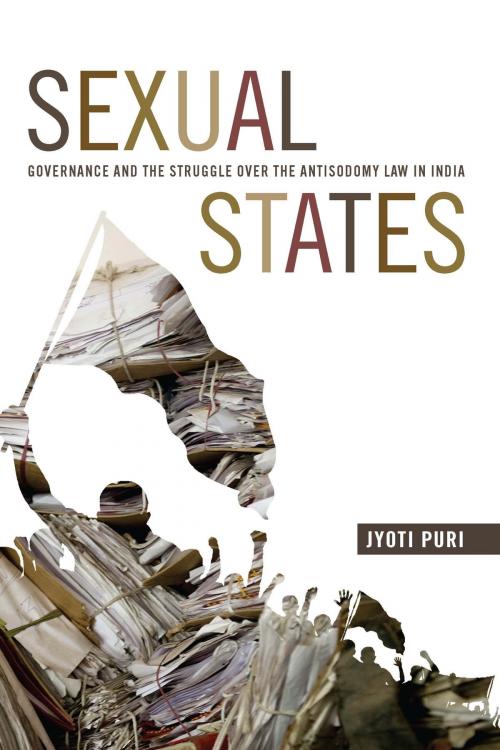Sexual States
Governance and the Struggle over the Antisodomy Law in India
Nonfiction, History, Asian, India, Social & Cultural Studies, Social Science, Gender Studies, Gay Studies, Political Science, Politics, History & Theory| Author: | Jyoti Puri | ISBN: | 9780822374749 |
| Publisher: | Duke University Press | Publication: | February 25, 2016 |
| Imprint: | Duke University Press Books | Language: | English |
| Author: | Jyoti Puri |
| ISBN: | 9780822374749 |
| Publisher: | Duke University Press |
| Publication: | February 25, 2016 |
| Imprint: | Duke University Press Books |
| Language: | English |
In Sexual States Jyoti Puri tracks the efforts to decriminalize homosexuality in India to show how the regulation of sexuality is fundamentally tied to the creation and enduring existence of the state. Since 2001 activists have attempted to rewrite Section 377 of the Indian Penal Code, which in addition to outlawing homosexual behavior is often used to prosecute a range of activities and groups that are considered perverse. Having interviewed activists and NGO workers throughout five metropolitan centers, investigated crime statistics and case law, visited various state institutions, and met with the police, Puri found that Section 377 is but one element of how homosexuality is regulated in India. This statute works alongside the large and complex system of laws, practices, policies, and discourses intended to mitigate sexuality's threat to the social order while upholding the state as inevitable, legitimate, and indispensable. By highlighting the various means through which the regulation of sexuality constitutes India's heterogeneous and fragmented "sexual state," Puri provides a conceptual framework to understand the links between sexuality and the state more broadly.
In Sexual States Jyoti Puri tracks the efforts to decriminalize homosexuality in India to show how the regulation of sexuality is fundamentally tied to the creation and enduring existence of the state. Since 2001 activists have attempted to rewrite Section 377 of the Indian Penal Code, which in addition to outlawing homosexual behavior is often used to prosecute a range of activities and groups that are considered perverse. Having interviewed activists and NGO workers throughout five metropolitan centers, investigated crime statistics and case law, visited various state institutions, and met with the police, Puri found that Section 377 is but one element of how homosexuality is regulated in India. This statute works alongside the large and complex system of laws, practices, policies, and discourses intended to mitigate sexuality's threat to the social order while upholding the state as inevitable, legitimate, and indispensable. By highlighting the various means through which the regulation of sexuality constitutes India's heterogeneous and fragmented "sexual state," Puri provides a conceptual framework to understand the links between sexuality and the state more broadly.















